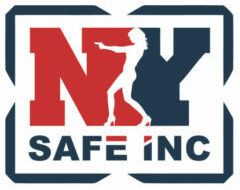If you’re applying for a NY Concealed Carry permit in New York, understanding state and federal firearm laws is crucial. In this guide, we’ll break down the most critical legal statutes—including NY Penal Law §265, §400, §35, and Federal 18 U.S. Code §922(g)—so you can carry responsibly and legally.
Why Understanding the Law Matters
NY Concealed Carry isn’t just about marksmanship or self-defense; it’s equally about knowing the law. New York has some of the most comprehensive firearm regulations in the country. Violating any of them, even unknowingly, can lead to criminal charges or permanent loss of gun rights.
NY Penal Law §265: Criminal Possession of a Weapon
This section outlines what constitutes unlawful possession of firearms in New York. Key takeaways include:
- It is illegal to possess a handgun in New York without a valid NYS pistol permit.
- Possession of certain weapons (e.g., assault weapons, large-capacity magazines) is prohibited.
- Transporting a handgun outside your listed premises or range, even in a locked case, without a carry license can be a felony.
Relevance for Concealed Carry: You must have a concealed carry permit issued under NY PL §400 to carry a handgun outside your home or business legally.
NY Penal Law §400: Licensing of Firearms
NY PL §400 is the foundation for how handgun licenses are issued and regulated. Highlights include:
- Applicants must complete a state-approved 18-hour firearm safety course.
- You must be at least 21 years old, of good moral character, and without a disqualifying criminal or mental health history.
- Licensing authorities (usually county judges or police commissioners) have discretion to issue or deny permits.
Relevance for NY Concealed Carry: This law governs everything from initial application requirements to license revocation. Recent changes now mandate live-fire training and background checks for ammunition purchases.
NY Penal Law §35: Justification (Use of Force)
This section defines when the use of physical or deadly force is legally justified in self-defense:
- You may use physical force to defend yourself or others from unlawful force.
- Deadly physical force is only justified if you reasonably believe it’s necessary to prevent death, serious injury, kidnapping, rape, or certain violent crimes.
- There is no “Stand Your Ground” law in NY; a duty to retreat exists unless you are in your own dwelling and not the initial aggressor.
Relevance for Concealed Carry: Knowing when you can legally draw or discharge your firearm is vital. Misuse, even with a license, can result in serious charges.
18 U.S. Code §922(g): Federal Firearm Prohibitions
Federal law prohibits specific individuals from possessing firearms, regardless of state law:
- Convicted felons
- Fugitives from justice
- Unlawful users of controlled substances
- Individuals with certain mental health adjudications
- Persons subject to qualifying protection orders or convicted of misdemeanor domestic violence
Relevance for NY Concealed Carry: You must not only comply with state licensing requirements but also remain federally eligible to possess a firearm.
Staying Compliant as a Permit Holder
- Know where you can and cannot carry: Federal buildings, schools, and private property with posted signage may be off-limits.
- Stay up to date: Laws change frequently. Subscribe to updates from NY SAFE Inc. or the NYS Police Firearms Bureau.
- Use common sense: Carrying a concealed weapon comes with great responsibility. Make informed decisions in high-pressure situations.
Conclusion: Knowledge is Power
Understanding NYS firearm laws isn’t optional—it’s a critical part of your responsibility as a gun owner and permit holder. From NY Penal Law §265 to federal restrictions under 18 U.S.C. §922(g), each law plays a role in determining your legal right to carry. At NY SAFE Inc., we make sure every student knows the law as well as they know their firearm.
Ready to become a responsible and informed permit holder? Visit www.nysafeinc.com to sign up for our state-approved NY CCW certification courses today.
Disclaimer: This article is for informational purposes only and does not constitute legal advice. Firearm laws are complex and subject to change. For legal guidance specific to your situation, please consult a qualified attorney.

No responses yet